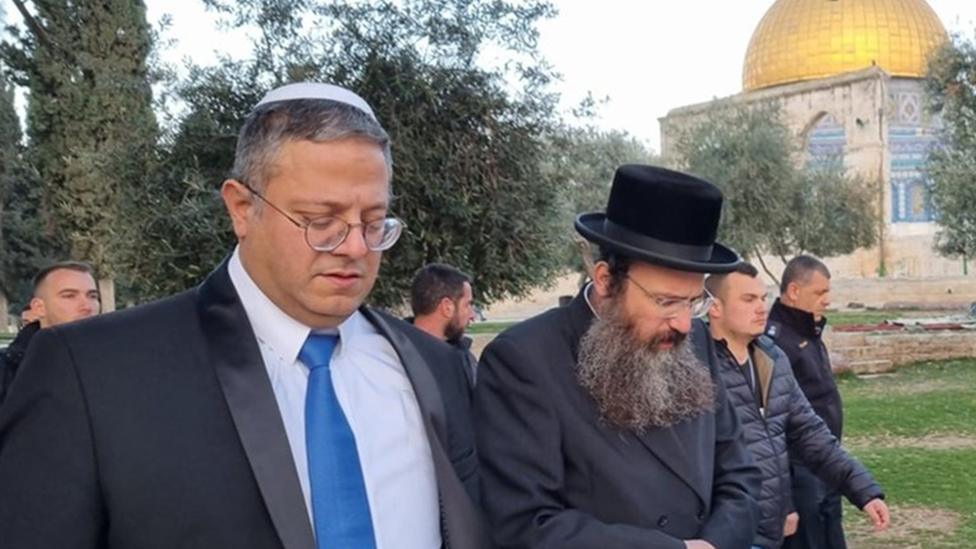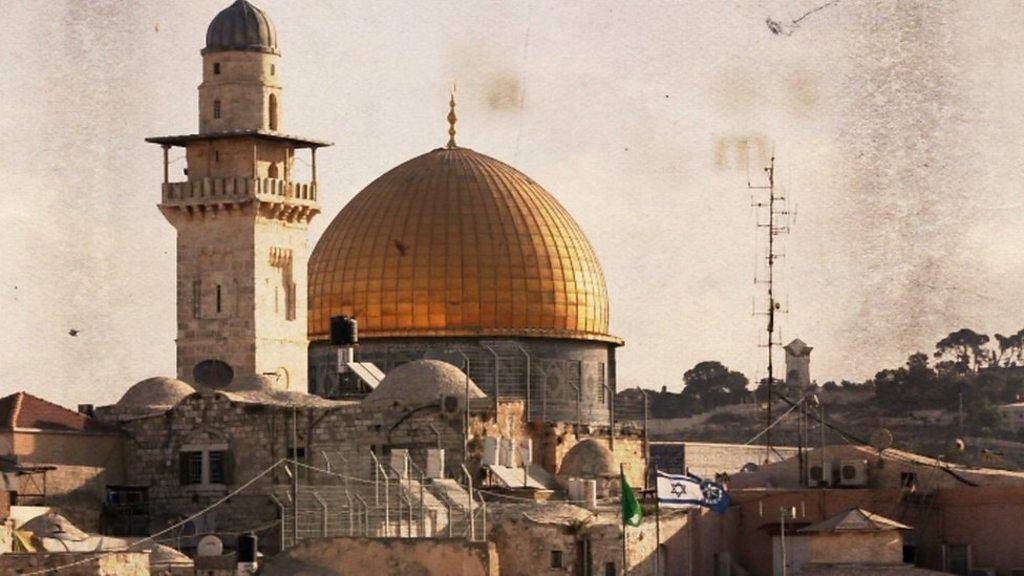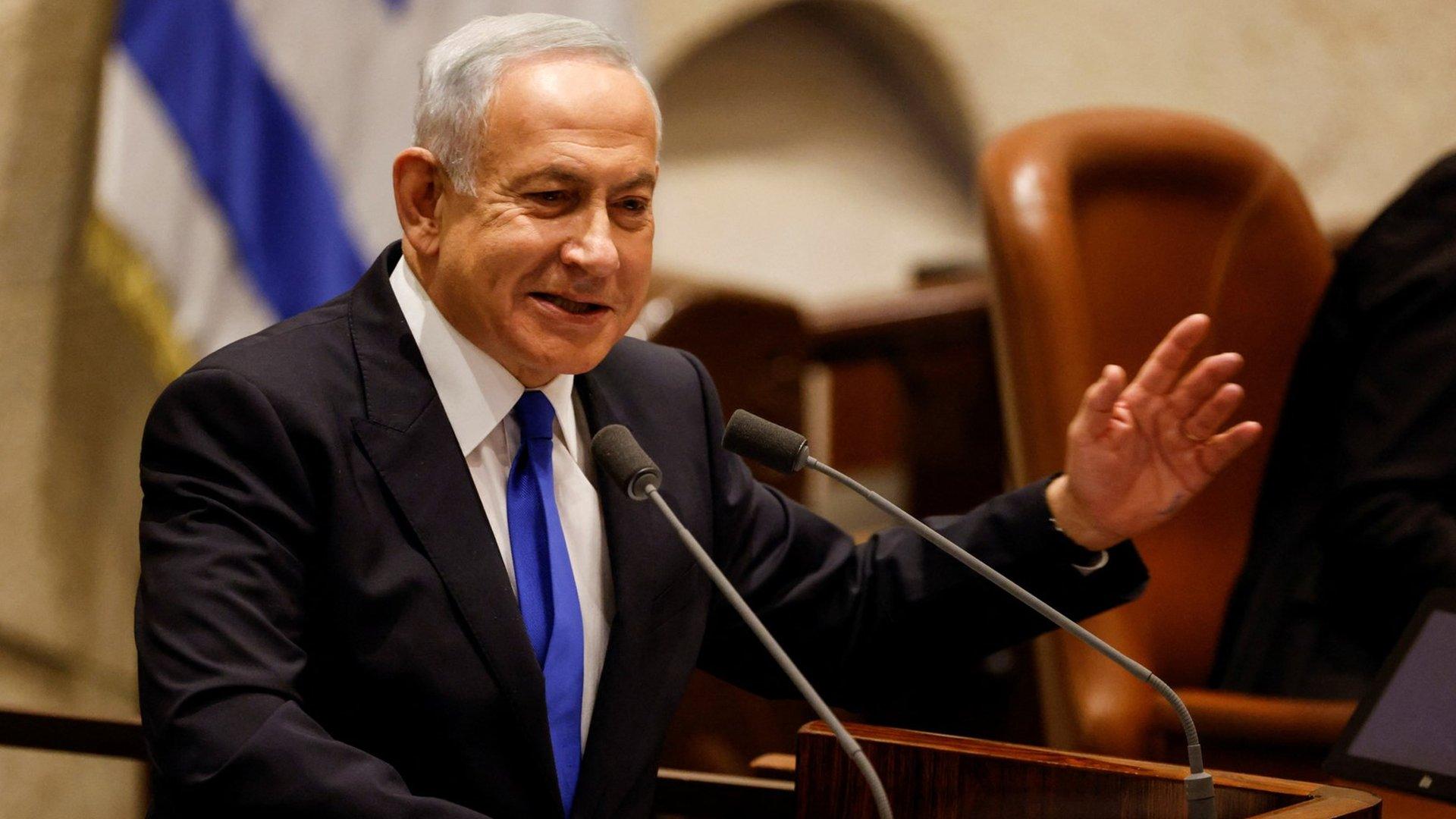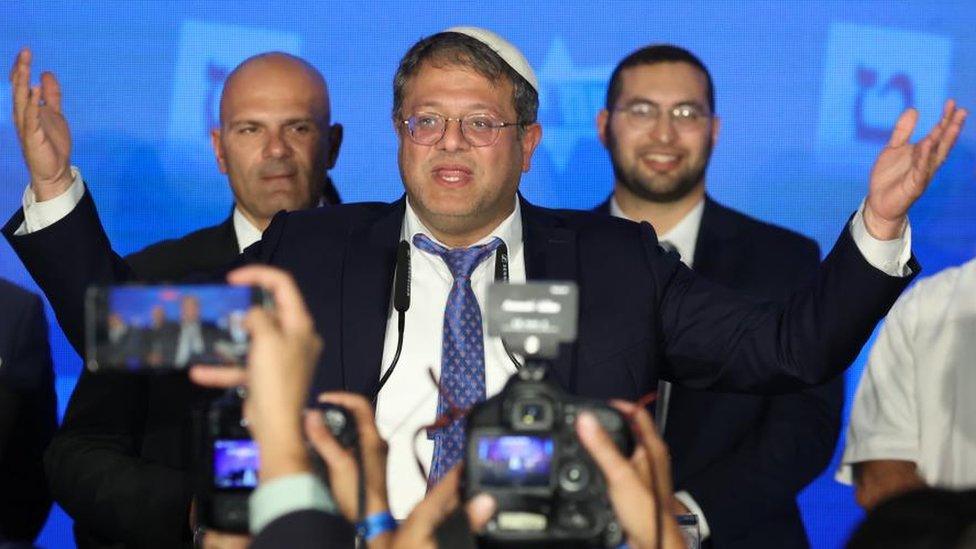Israel and Palestinians in holy site war of words
- Published
WATCH: Israeli minister visits contested Jerusalem site surrounded by police
Israeli and Palestinian envoys have traded accusations at a UN meeting over an Israeli minister's visit to a contested holy site in Jerusalem.
The Palestinian ambassador said Israel displayed "absolute contempt" for the international community, and demanded the UN take action.
His Israeli counterpart accused the Palestinians of mounting "a poisonous campaign" to erase Jewish history.
The minister's visit on Tuesday was seen by Palestinians as provocative.
It was made by Israel's new National Security Minister, Itamar Ben-Gvir, a far-right political leader known for past anti-Arab statements and once convicted of incitement to racism.
Mr Ben-Gvir's visit was his first public act since the government, led by Prime Minister Benjamin Netanyahu, was sworn in five days earlier.
The hilltop site is the most sacred place in Judaism and the third holiest in Islam. It is known to Jews as the Temple Mount, site of two Biblical temples, and to Muslims as Haram al-Sharif, the site of Muhammad's ascent to Heaven. The entire compound is considered to be al-Aqsa Mosque by Muslims.
Jews and other non-Muslims are allowed to go to the compound but not pray, though Palestinians see visits by Jews as attempts to change the delicate status quo.
Addressing the emergency meeting of the UN Security Council, Palestinian ambassador Riyad Mansour accused the world body of inaction.
"What red line does Israel need to cross for the Security Council to finally say enough is enough and act accordingly?" he asked. "When are you going to act? It [Israel] has displayed utter disregard for the sanctity of Palestinian life, the sanctity of international law and the sanctity of Haram al-Sharif... yet the council remains on the sidelines."
"Our people are running out of patience," he added, warning: "The record shows that Israel's persistence on this path does not lead to surrender but to uprising."
"Israeli actions have nothing to do with religious freedom and everything to do with the unlawful attempt to alter the character, status and identity of the city [Jerusalem]".
Israel's ambassador Gilad Erdan responded angrily, saying Palestinian objections were motivated by "Jew-hatred and antisemitism".
"For years now the Palestinians have orchestrated and advanced a poisonous campaign to obliterate any trace or connection between the Jewish people and the Temple Mount, " he said. "They exploit every means both in words and actions to promote these lies."
"This insidious plot," he said, "comes directly from the top of Palestinian leadership... the personal threats of the Palestinian representative speak volumes."
He said it was "absurd" that the Security Council had felt it necessary to discuss "the peaceful 13-minute visit of a Jewish minister to the holiest Jewish site".
"The very fact that this meeting was held is an insult to our intelligence," he said.

The holy compound is the most sensitive site in the Israeli-Palestinian conflict. Situated in occupied East Jerusalem, it was captured by Israel from Jordan in the 1967 Middle East war. Under a delicate set of arrangements, Jordan was allowed to continue its historical role as custodian of the site, while Israel assumed control of security and access.
Muslim prayer continued to be the only form of worship allowed there, although a bar on Jewish visits was lifted. Palestinians argue that in recent years, steps have been taken that undermine the status quo, with Orthodox Jewish visitors often seen praying quietly without being stopped by Israeli police.
The number of visits by Jews has swelled in the past few years, something Palestinians claim is part of a surreptitious attempt to take over the site.
Jerusalem's Temple Mount/ Haram al-Sharif explained
- Published3 January 2023

- Published15 October 2015

- Published29 December 2022

- Published25 November 2022
